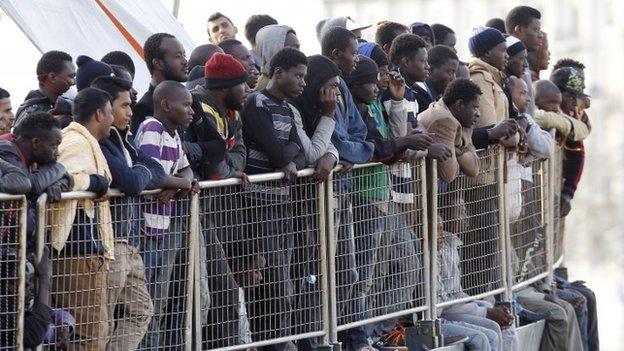Migrant crisis: EU calls emergency talks
- Published
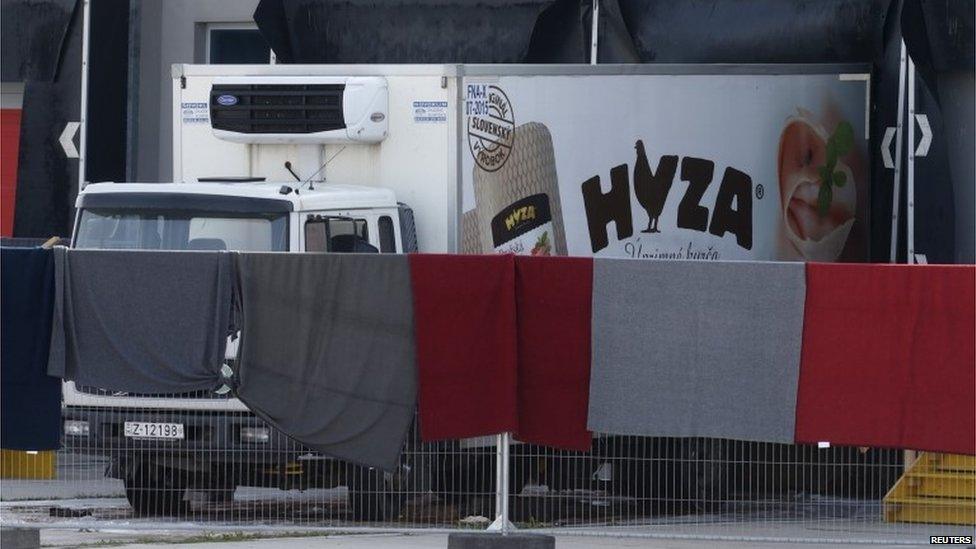
The discovery of 71 bodies in an abandoned lorry in Austria has heaped pressure on EU governments
The European Union has announced emergency talks on 14 September to deal with the escalating migration crisis.
Austria has begun expanding checks on lorries near its eastern borders, after Europe was shocked by the discovery of 71 dead migrants in a lorry near the border with Hungary.
Hundreds more people also drowned in the Mediterranean last week, as they tried to reach Europe from Libya.
A record number, external of 107,500 migrants reached the EU's borders last month.
Long traffic jams built up on Hungary's major roads leading to the Austrian border, because of the extra Austrian police checks.
Queues of 30km (18 miles) were reported on the main M1 road from Budapest, as security officials searched vehicles over the border in Nickelsdorf. There were also jams further along the border at Klingenbach and Deutschkreutz.
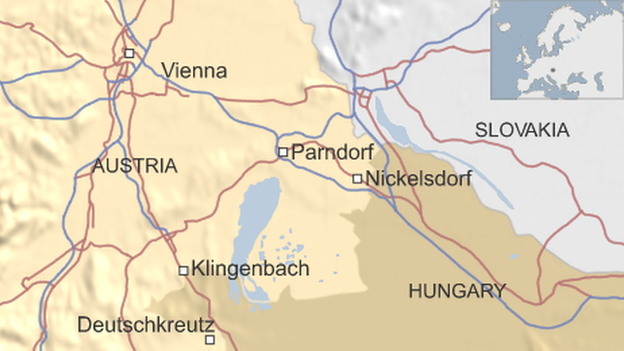
Five people have been detained in connection with the deaths of 71 people, most of them thought to be Syrians, in a lorry found on the A4 at Parndorf.
"We will do controls for an undetermined length of time at all important border crossings in the eastern region, looking at all vehicles that have possible hiding places for trafficked people," said Austrian Interior Minister Johanna Mikl-Leitner.
The Austrian checks appear to undermine the EU's Schengen system, which normally allows unrestricted travel. But in exceptional circumstances countries can reintroduce border controls under Schengen.
The UN says the continuing conflict in Syria is a major factor behind the rise in migrant numbers.
The rules governing immigration to the EU - explained in 90 seconds
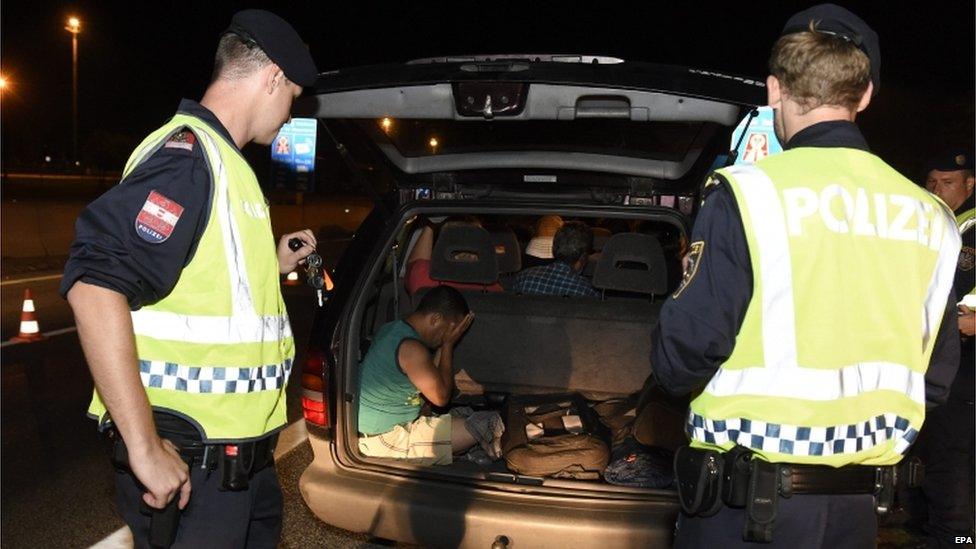
Two hundred migrants were found during the Austrian border checks which began on Sunday night
Greece, Italy and Hungary have particularly struggled with the surge of migrants from not only Syria but the rest of the Middle East and Africa.
Next month's extraordinary meeting of EU interior ministers was announced late on Sunday by Luxembourg.
"The situation of migration phenomena outside and inside the European Union has recently taken unprecedented proportions," it said in a statement, external.
In July, the number of migrants that reached the EU's borders topped 100,000 for the first time - triple the number of people in July last year, according to European agency Frontex.
France-Hungary row
But there are tensions in the EU over how best to tackle the influx.
France has condemned Hungary, for example, for building a razor-wire fence along its border with Serbia to deter migrants.
On Sunday French Foreign Minister Laurent Fabius accused Hungary of flouting "the common values of Europe". His Hungarian counterpart Peter Szijjarto said such the criticism was "shocking and groundless".
Hungary plans to strengthen the 174km (109-mile) fence, as thousands of migrants have still managed to get through it.
UN refugee spokesman Babar Baloch was also critical of the Hungarian government's approach, complaining that they "gone out to the public trying to vilify the refugees so they portray being refugee as something the way they describe it that these people do not deserve international protection".

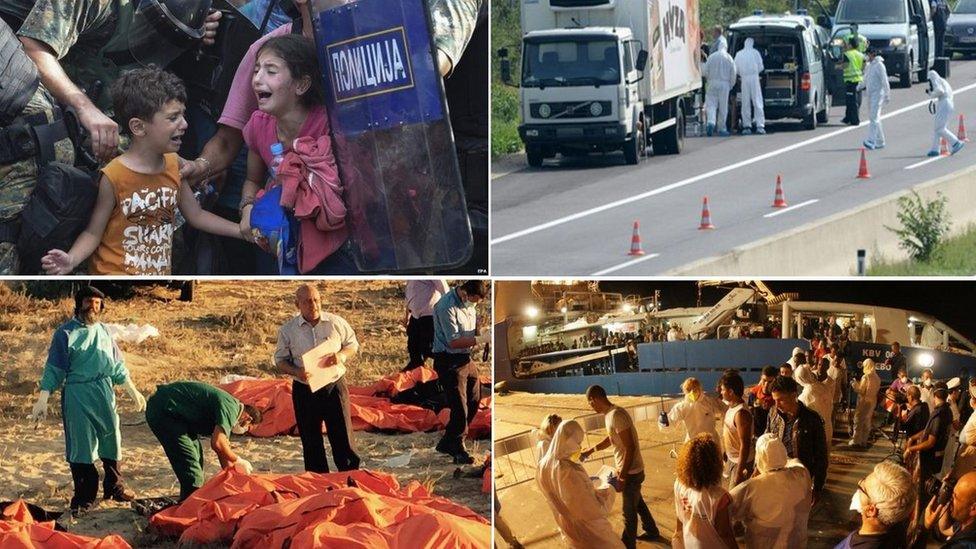
10 days of the migrant crisis
Crowds of migrants rush at Macedonian border forces in an attempt to enter from Greece
Hundreds of people are feared dead after two boats carrying about 500 migrants sink in the Mediterranean, off Libya. More than 300,000 migrants have risked their lives trying to cross the Mediterranean this year, according to the UN
A lorry abandoned in Austria near the Hungarian border is found to have 71 dead people inside including four children
Twenty-six migrants are rescued from a van in Austria, near the border with Germany.

Discussion points will include internal co-operation, fighting the trafficking of migrants, and return policy.
Germany, France and the UK have said the EU should establish a list of "safe countries of origin" that would allow immediate repatriation of some migrants.
On Saturday Secretary-General Ban Ki-moon, external said much more was required to prevent the deaths of people fleeing to Europe and called for a "collective political response".
He said he was "horrified and heartbroken" by the discovery of 71 dead people - believed to have fled the Syrian conflict - in a lorry in Austria on Thursday.
At least 2,500 migrants have died since January, most of them drowning in the Mediterranean.
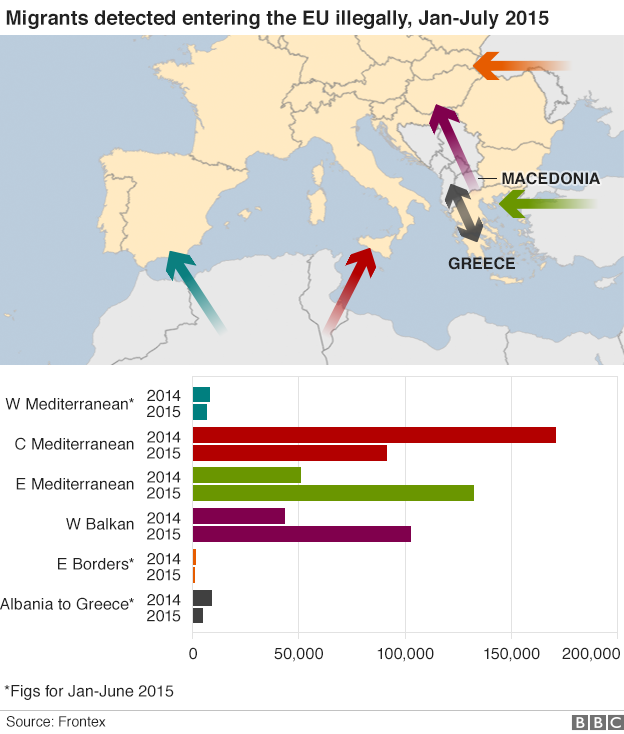
Why is EU struggling with migrants and asylum?
Germany expects the number of asylum seekers it receives to quadruple to about 800,000 in 2015.
Chancellor Angela Merkel told reporters in Berlin on Sunday: "If Europe has solidarity and we have also shown solidarity towards others, then we need to show solidarity now."
Some governments have refused to take in refugees and resisted EU proposals to agree on a common plan.
Others are tightening their policies on asylum and border security, sometimes because of rising anti-immigration sentiment.
On Sunday, UK Home Secretary Theresa May blamed the Schengen system - which the UK did not join - for "exacerbating tragedies". She has demanded tighter EU rules on free movement.
Some European governments are considering amending Schengen, but the European Commission, the EU executive, argues against that.
Italian Prime Minister Matteo Renzi, whose country has come under great pressure as an entry point to Europe, said the EU would forge "a single European policy on asylum, not as many policies as there are countries".
- Published30 August 2015
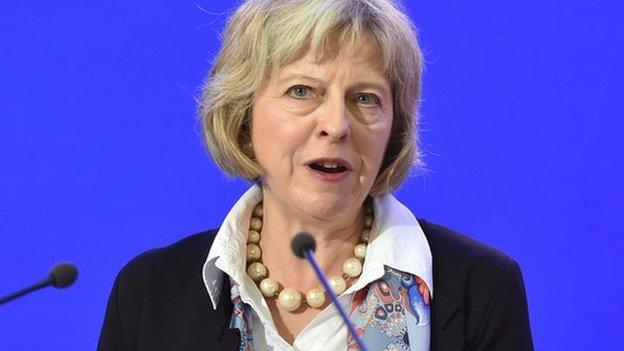
- Published30 August 2015
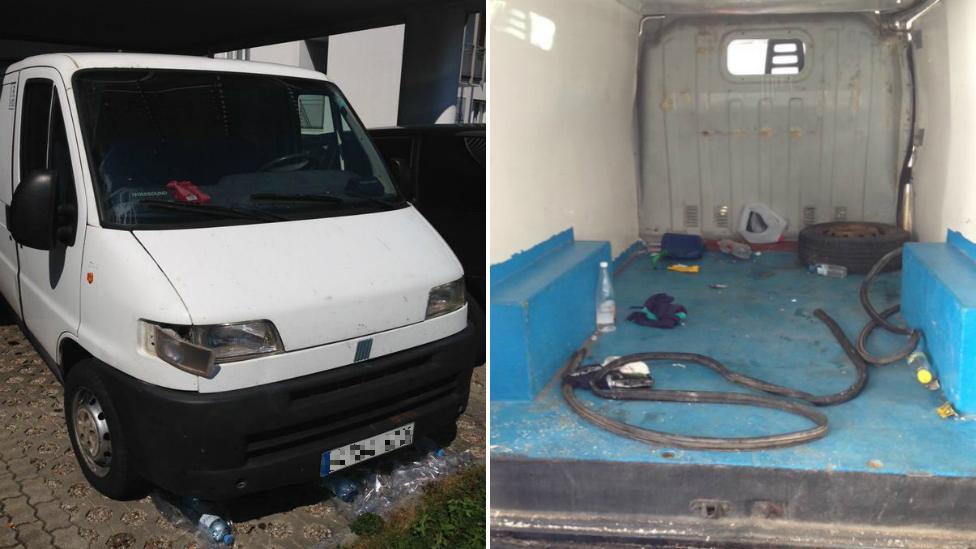
- Published29 August 2015
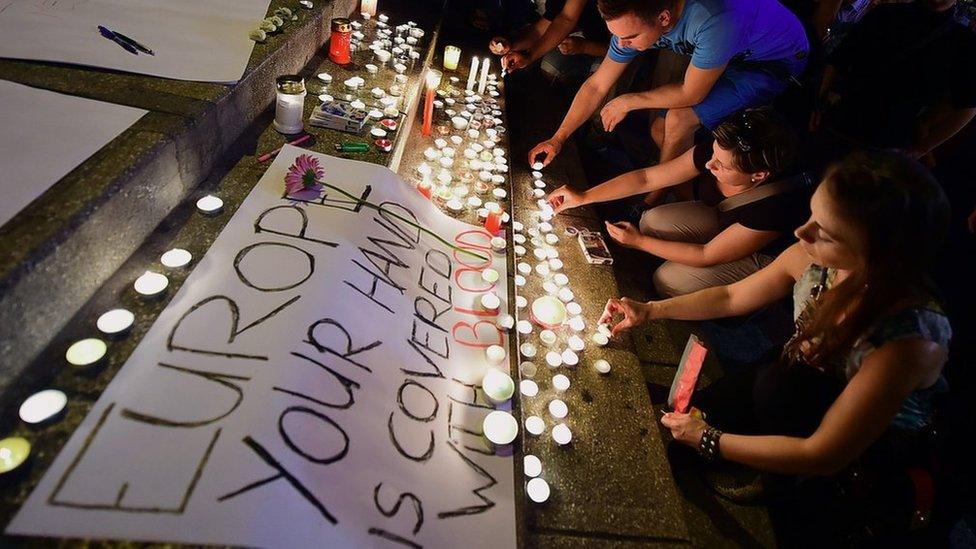
- Published3 March 2016
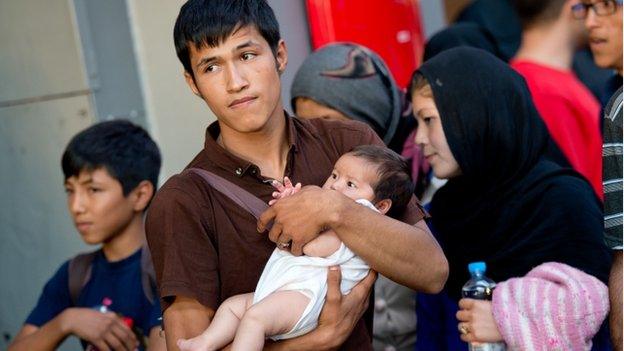
- Published18 June 2015
